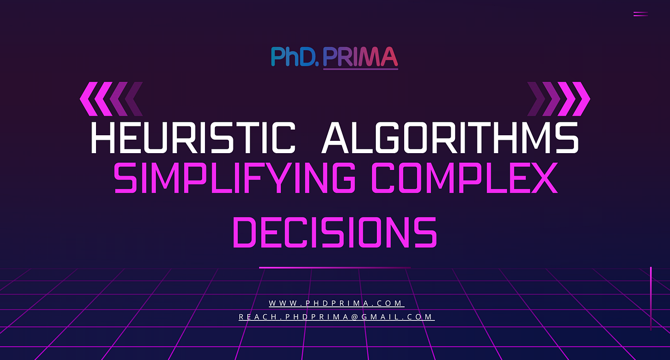Medium
1M
4

Image Credit: Medium
Heuristic Algorithms in Artificial Intelligence: Simplifying Complex Decisions
- Heuristic algorithms rely on rule-of-thumb approaches instead of exhaustive searches for optimal solutions. They enable AI systems to provide 'good-enough' solutions when an optimal answer would be computationally expensive or time-consuming.
- Heuristic algorithms are particularly effective in environments that demand quick, adaptive responses, such as robotics, gaming, and autonomous vehicles.
- Heuristics algorithms are useful in complex or large-scale problems where an exhaustive search would be computationally infeasible. Instead of seeking perfection, heuristics aim for solutions that balance trade-off between time and accuracy.
- Search problems, such as navigation, optimization, and decision-making, are areas where heuristic algorithms shine.
- Heuristics are integral to parsing and analyzing human language and help in computer vision, feature extraction, and object recognition.
- The fundamental limitations of heuristic algorithms are that they do not always guarantee the optimal solution, and they can be prone to bias and overfitting. They also require manual adjustment or parameter tuning and can be difficult to generalize across domains.
- Heuristics may not always perform optimally in dynamic or uncertain environments.
- Despite their limitations, heuristic algorithms play an essential role in AI, and their incorporation with other approaches can create more adaptive, accurate, and dynamic solutions.
- As AI technologies continue to advance and new applications emerge, the role of heuristics in solving increasingly complex and dynamic problems will only grow more important.
- PhD Prima provides expert research writing, publication support, thesis writing, and dissertation services tailored to the needs of AI researchers, developers, and academics.
Read Full Article
Like
For uninterrupted reading, download the app